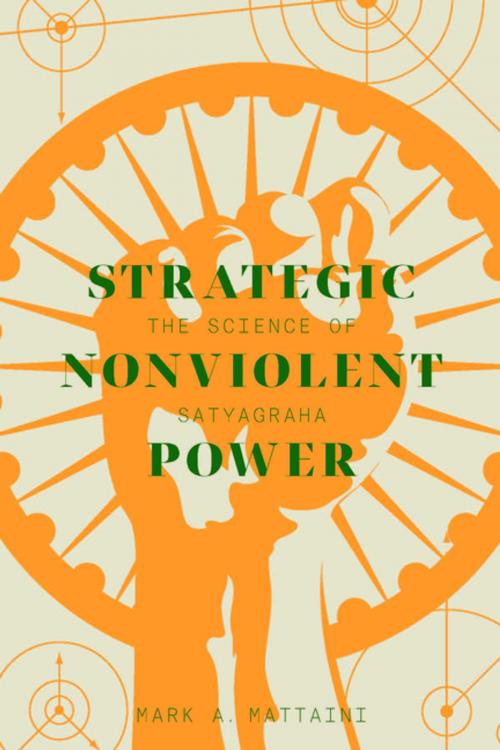Strategic Nonviolent Power
The Science of Satyagraha
Nonfiction, Social & Cultural Studies, Social Science, Sociology, Reference & Language, Reference, Political Science| Author: | Mark Mattaini | ISBN: | 9781927356432 |
| Publisher: | Athabasca University Press | Publication: | October 1, 2013 |
| Imprint: | AU Press | Language: | English |
| Author: | Mark Mattaini |
| ISBN: | 9781927356432 |
| Publisher: | Athabasca University Press |
| Publication: | October 1, 2013 |
| Imprint: | AU Press |
| Language: | English |
History indicates that there are powerful routes to liberation from oppression that do not involve violence. Mohandas Gandhi called for a science of nonviolent action, one based on satyagraha, or the “insistence on truth.” As Gandhi understood, nonviolent resistance is not passive, nor is it weak; rather, such action is an exercise of power. Despite the success of Gandhi’s “Quit India” movement, the resources dedicated to the application of rigorous science to nonviolent struggle have been vanishingly small. By contrast, almost unimaginable levels of financial and human resources have been devoted to the science and technologies of killing, war, and collective violence. Mark Mattaini reviews the history and theory of nonviolent struggles against oppression and discusses recent research that indicates the substantial need for and advantage of nonviolent alternatives. He then offers a detailed exploration of principles of behavioral systems science that appear to underlie effective strategic civil resistance and “people power.” Strategic Nonviolent Power proposes that the route to what Gandhi described as the “undreamt of and seemingly impossible discoveries” of nonviolent resistance is the application of rigorous science. Although not a simple science, Mattaini’s application of ecological science grounded in the science of behaviour brings exceptional power to the struggle for justice and liberation. At a time when civil resistance is actively reshaping global political realities, the science of nonviolent struggle deserves the attention of the scientific, activist, strategic, military, spiritual, and diplomatic communities, as well as the informed public.
History indicates that there are powerful routes to liberation from oppression that do not involve violence. Mohandas Gandhi called for a science of nonviolent action, one based on satyagraha, or the “insistence on truth.” As Gandhi understood, nonviolent resistance is not passive, nor is it weak; rather, such action is an exercise of power. Despite the success of Gandhi’s “Quit India” movement, the resources dedicated to the application of rigorous science to nonviolent struggle have been vanishingly small. By contrast, almost unimaginable levels of financial and human resources have been devoted to the science and technologies of killing, war, and collective violence. Mark Mattaini reviews the history and theory of nonviolent struggles against oppression and discusses recent research that indicates the substantial need for and advantage of nonviolent alternatives. He then offers a detailed exploration of principles of behavioral systems science that appear to underlie effective strategic civil resistance and “people power.” Strategic Nonviolent Power proposes that the route to what Gandhi described as the “undreamt of and seemingly impossible discoveries” of nonviolent resistance is the application of rigorous science. Although not a simple science, Mattaini’s application of ecological science grounded in the science of behaviour brings exceptional power to the struggle for justice and liberation. At a time when civil resistance is actively reshaping global political realities, the science of nonviolent struggle deserves the attention of the scientific, activist, strategic, military, spiritual, and diplomatic communities, as well as the informed public.















